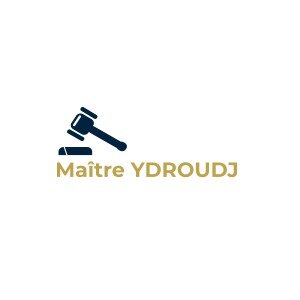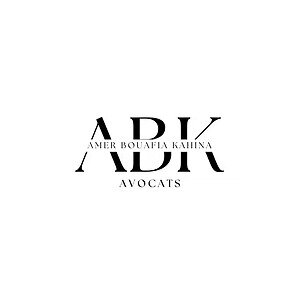Best Private Client Lawyers in Algeria
Share your needs with us, get contacted by law firms.
Free. Takes 2 min.
Or refine your search by selecting a city:
List of the best lawyers in Algeria
About Private Client Law in Algeria
Private Client law in Algeria encompasses legal services for individuals and families concerning personal matters such as inheritance, estate planning, wills, tax issues, trusts, asset management, family law, residency, and wealth protection. Algeria's legal system is influenced by both civil law traditions and Islamic Sharia, especially in family and inheritance matters. This area of law is essential for those looking to manage, protect, and transfer their assets or resolve family and succession issues in accordance with Algerian law.
Why You May Need a Lawyer
A lawyer experienced in Algerian Private Client law is particularly valuable in situations such as:
- Drafting or updating a will to ensure your assets are distributed according to your wishes
- Dealing with the administration of estates after a person's passing
- Managing family disputes concerning inheritance or property
- Understanding your obligations and rights under Algerian and Islamic inheritance law
- Planning for tax efficiency and asset protection
- Organizing succession plans for family-owned businesses
- Seeking legal residency or dealing with issues of citizenship
- Handling cross-border inheritance or assets
- Establishing legal guardianship for minors or vulnerable family members
- Protecting your assets from legal challenges or creditors
Algerian laws can be complex for those unfamiliar with the system, making legal advice crucial to avoid costly mistakes or disputes.
Local Laws Overview
Private Client law in Algeria operates within the framework of the Algerian Civil Code and Family Code. Some of the key features include:
- Inheritance Law: Based on a combination of the Civil Code and Islamic Sharia, inheritance is distributed among heirs according to fixed shares. Specific rules apply to spouses, children, parents, and other relatives.
- Wills: There are restrictions on the proportion of an estate that can be freely bequeathed by will. Typically, a person can only dispose by will of up to one third of their estate, with the remainder distributed among forced heirs.
- Family Law: Marriage, divorce, adoption, and guardianship are regulated under the Family Code. These laws consider both statutory provisions and religious customs.
- Property and Succession: Property law may differ depending on how assets are acquired or owned (individual, joint, or communal). Succession proceedings are required to transfer property ownership after death.
- Taxation: Inheritance tax, property tax, and other relevant fiscal obligations may come into play at different stages of estate planning or administration.
- Residence and Citizenship: Rules around residency, citizenship, and foreign ownership require careful navigation, especially for expatriates or those with ties to other countries.
Frequently Asked Questions
What happens to my property if I die without a will in Algeria?
If you pass away without a will, your estate is distributed according to Algerian inheritance law, combining principles from the Civil Code and Islamic Sharia. Forced heirs such as spouses, children, and parents have fixed shares.
Can I leave all my assets to one person in Algeria?
No, the law limits testamentary freedom. You can only bequeath up to one third of your estate to non-forced heirs. The remainder must be allocated according to mandatory shares for certain family members.
Does Algerian law recognize trusts?
Algerian law does not formally recognize Anglo-Saxon style trusts as seen in common law jurisdictions. Alternative structures for asset protection or wealth management must comply with Algerian legal forms.
How do I draft a valid will in Algeria?
A will must meet specific formal requirements to be valid. It should be written, signed, and often witnessed, and it may require registration or notarization. Consulting a qualified lawyer is the best way to ensure all legal criteria are met.
What taxes apply to inheritance in Algeria?
Inheritance tax applies based on the value of assets and the relationship between the decedent and the heirs. Tax rates and exemptions can vary, so it is important to seek up-to-date information from a legal advisor or tax authority.
Is foreign property included in my Algerian estate?
Generally, the distribution of foreign property depends on the laws of the country where the property is located. However, Algerian courts may apply local inheritance laws to assets held in Algeria, while international issues may require separate legal advice.
How is joint property treated upon death?
Joint property is usually divided according to each owner's share. The deceased person's share becomes part of their estate and is subject to local succession rules.
Can non-Muslim residents or foreigners inherit assets in Algeria?
Non-Muslims and foreigners can inherit property in Algeria, but the process may involve additional legal steps or restrictions, especially for real estate assets. Legal advice is recommended to navigate these issues.
How long does the probate process take in Algeria?
The duration varies depending on the complexity of the estate, the number of heirs, and the presence of disputes. It can range from several months to over a year.
What should I do if there is a dispute among heirs?
It is advisable to seek mediation or legal advice as early as possible. Courts can intervene to resolve inheritance disputes, but legal representation is important to protect your interests and seek amicable solutions where possible.
Additional Resources
If you require information or assistance related to Private Client matters in Algeria, consider contacting the following:
- Local Notaries (Notaires): Notaries play a crucial role in authenticating documents, preparing wills, and handling estate administration.
- Order of Lawyers (Ordre National des Avocats): The national bar association offers referrals and information about finding qualified lawyers.
- Ministry of Justice (Ministère de la Justice): Government offices provide brochures and guidance on family law, succession, and property matters.
- Tax Authorities (Direction Générale des Impôts): For inheritance tax and property tax information.
- Embassies and Consulates: Can provide guidance to foreigners regarding local inheritance laws and processes.
- Civil Status Registries (Bureau de l'Etat Civil): Where vital records such as birth, marriage, and death certificates can be obtained.
Next Steps
If you are facing a private client legal issue in Algeria, here are some steps to follow:
- Gather and organize all relevant documents such as identification papers, property deeds, marriage or birth certificates, and existing wills or contracts.
- List your questions and concerns before seeking professional advice.
- Contact a notary or a qualified private client lawyer in Algeria for an initial consultation. Ensure they have expertise in inheritance, family, or property law as needed.
- If you are a foreigner or have assets outside Algeria, inform your lawyer to ensure proper cross-border coordination.
- Ask about the estimated timeline, costs, and steps involved in your legal matter.
- Follow your lawyer's instructions carefully and maintain copies of all legal documents and correspondence.
Timely legal advice is the best way to protect your interests and ensure compliance with all local rules. Do not hesitate to seek help early to avoid complications or misunderstandings.
Lawzana helps you find the best lawyers and law firms in Algeria through a curated and pre-screened list of qualified legal professionals. Our platform offers rankings and detailed profiles of attorneys and law firms, allowing you to compare based on practice areas, including Private Client, experience, and client feedback.
Each profile includes a description of the firm's areas of practice, client reviews, team members and partners, year of establishment, spoken languages, office locations, contact information, social media presence, and any published articles or resources. Most firms on our platform speak English and are experienced in both local and international legal matters.
Get a quote from top-rated law firms in Algeria — quickly, securely, and without unnecessary hassle.
Disclaimer:
The information provided on this page is for general informational purposes only and does not constitute legal advice. While we strive to ensure the accuracy and relevance of the content, legal information may change over time, and interpretations of the law can vary. You should always consult with a qualified legal professional for advice specific to your situation.
We disclaim all liability for actions taken or not taken based on the content of this page. If you believe any information is incorrect or outdated, please contact us, and we will review and update it where appropriate.
Browse private client law firms by service in Algeria
Algeria Attorneys in related practice areas.
Browse private client law firms by city in Algeria
Refine your search by selecting a city.










